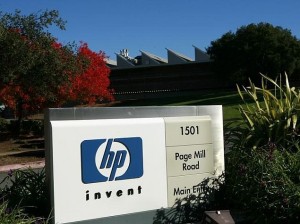 Hewlett-Packard Co and attorneys representing shareholders have agreed to settle litigation over its troubled $11.1 billion acquisition of British software company Autonomy Corp, according to a source familiar with the negotiations.
Hewlett-Packard Co and attorneys representing shareholders have agreed to settle litigation over its troubled $11.1 billion acquisition of British software company Autonomy Corp, according to a source familiar with the negotiations.
Under the terms of the settlement, involving three lawsuits, the attorneys for the shareholders have agreed to drop all claims against HP’s current and former executives, including CEO Meg Whitman, board members and advisers to the company, the source said.
The exception to that will be former officials at Autonomy. As part of the agreement, the shareholders’ attorneys will assist HP in pursuing claims against Autonomy’s co-founder and former CEO Michael Lynch, its former chief financial officer Sushovan Hussain, and potentially others related to Autonomy, the source said. The precise nature of such claims and when HP might file them could not be learned.
The settlement, which followed mediation, is expected to be announced as soon as Monday. The source said it is likely to be signed before Monday.
HP took an $8.8 billion impairment charge in November 2012 for its purchase of Autonomy only just over a year earlier, with more than $5 billion of that linked to what HP said at the time were “serious accounting improprieties, misrepresentation and disclosure failures.”
The size of the loss, and the speed with which it occurred, marks the deal as one of the most disastrous done by a major company in recent years.
In particular, sources close to an HP investigation into the matter say that the technology giant believes that Autonomy’s results and prospects were made to look much better than they were.
Lynch, has consistently denied HP’s allegations, saying HP is blaming him for its own failure to manage Autonomy after the acquisition.
A spokesman for Lynch said that “we continue to reject HP’s allegations.” He said it appears that Whitman will be using a large sum of HP’s money to avoid explaining in court why she made the November 2012 allegations regarding Autonomy. “We hope this matter will now move beyond a smear campaign based on selective disclosure and HP will finally give a full explanation,” the Lynch spokesman added.
Hussain has not responded to calls and emails. His lawyer, John Keker, a founding partner of Keker & Van Nest LLP in San Francisco, did not respond to requests for comment.
Shared results of probe
Shareholders had sued HP board members and executives, accusing them of breaching their fiduciary duties and wasting corporate assets. The lawsuits sought corporate governance changes at HP, attorneys’ fees, and the ability to pursue damages claims against those responsible for the acquisition.
HP has shared the results of its investigation into accounting questions at Autonomy with attorneys representing the shareholders, the source familiar with the negotiations said.
One of the law firms representing shareholders in the settlement, Robbins Geller Rudman & Dowd LLP, declined to comment. The other firm, Cotchett Pitre & McCarthy LLP, was not immediately available for comment.
The attorneys representing shareholders will receive fees for helping HP pursue any further claims, the source said. Additional terms of HP’s settlement with shareholders are unclear.
HP’s allegations of accounting improprieties, misrepresentation and disclosure failures at Autonomy have prompted an investigation by the U.S. Securities and Exchange Commission and the Federal Bureau of Investigation, as well as the UK’s Serious Fraud Office.
The U.S. authorities have asked for more documents and interviewed several witnesses in recent weeks, sources familiar with the HP investigation said.
Representatives of the FBI and the SEC declined to comment. The SFO said its probe was “very much in progress.”
It is unclear if the investigations by the authorities in the U.S. and UK will lead to action against any parties involved in Autonomy or HP’s deal to acquire it. At the end of March, HP also settled a lawsuit that accused the personal computer maker’s former management of defrauding shareholders by abandoning a business model it had long touted. In that case, the company agreed to pay shareholders $57 million.
The lawsuit was filed after former HP CEO Leo Apotheker shocked investors on August 18, 2011 by announcing plans to refocus the company on business services and products, which included the Autonomy purchase.
Source-NDTV





